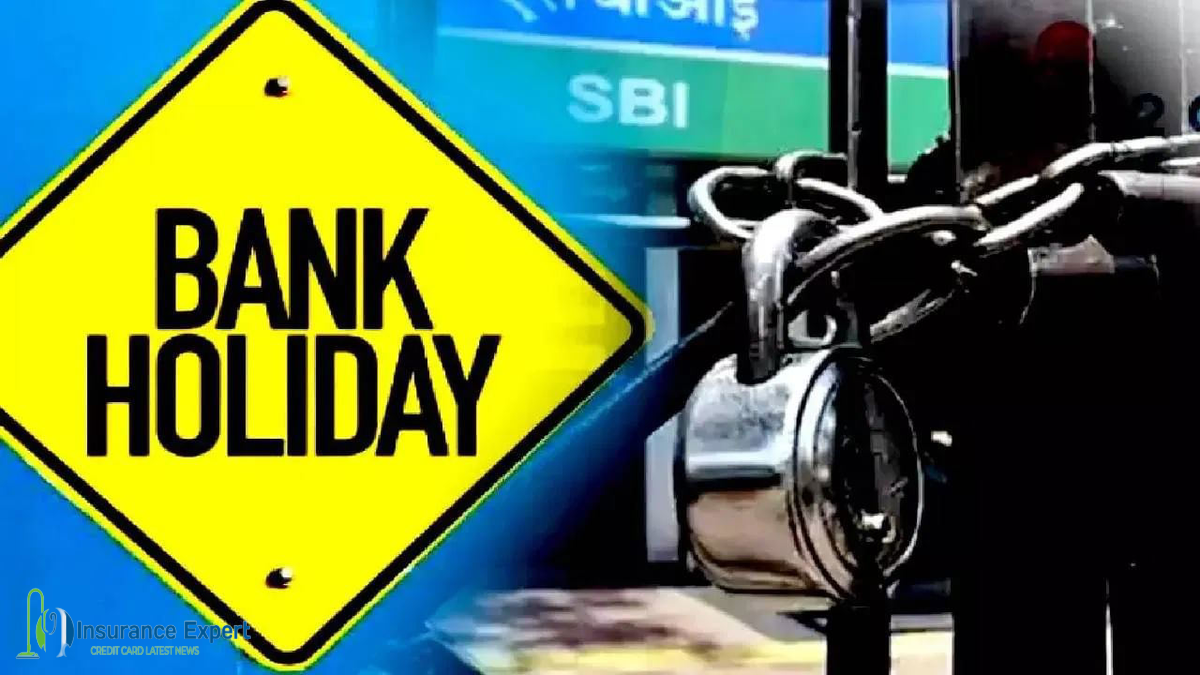Bank Holiday July 17: Are Banks Actually Closed for U Tirot Singh’s Death Anniversary?
The coffee isn’t even working yet. It’s morning, my to-do list is a mile long, and the top item, circled in red, is ‘DEPOSIT CLIENT CHEQUE.’ It’s the big one, the one that keeps the lights on this month. I grab my keys, and that’s when my phone buzzes with a news alert: ‘Bank Holiday Today: Banks to Remain Closed…’. My stomach plummets. You know that feeling, right? That cold, sudden dread that a simple public holiday is about to detonate your entire week’s plan. Are banks closed everywhere? Is it just here? The frantic Google search begins.
I’ve been there. We’ve all been there. Especially in a country as beautifully diverse and complex as India, where holidays aren’t a one-size-fits-all affair.
Which brings us to July 17th. There’s been a lot of chatter about this date. So let’s cut through the noise and get right into it.

The Short Answer Is… Maybe. Here’s the Real Deal on the July 17 Bank Holiday
Let’s get straight to the point. The Bank Holiday July 17 is very real. But before you throw your hands up in despair, take a deep breath. This is a classic case of a regional holiday. Specifically, it’s for the state of Meghalaya.
On July 17th, banks in Shillong and across Meghalaya will indeed be closed to commemorate the U Tirot Singh’s Death Anniversary. For the rest of India—Mumbai, Delhi, Chennai, Bangalore, Kolkata, you name it—it’s business as usual. Your bank branch will be open, the staff will be there, and that cheque can be deposited. Phew.
This is a crucial distinction, and one that often gets lost in broad headlines. The RBI holiday list, which is basically the bible for banking schedules, isn’t a single document. It’s a complex beast, categorized under things like the ‘Negotiable Instruments Act of 1881.’ I know, sounds like something from a dusty law library, but all it really means is that state governments have the power to declare specific days as public holidays, and banks in that state have to follow suit. This is precisely why you get these hyper-local holidays that can catch outsiders completely by surprise. It’s a system that respects regional identity above all else.
But Who Exactly Was U Tirot Singh? The Freedom Fighter Behind the Holiday
And this is where things get really interesting. Because this isn’t just about a day off. It’s about remembering a hero. If you’re not from the North East, you might not have heard of U Tirot Singh, and that’s a real shame, because his story is the stuff of legends.
Let’s park the banking talk for a minute, because this is genuinely fascinating. We need to go back to the early 19th century. The British East India Company is flexing its muscles, expanding its empire, and pushing into every corner of the subcontinent. In the Khasi Hills of what is now Meghalaya, they wanted to build a road to connect Assam with Sylhet (in modern-day Bangladesh). On the surface, it sounded like an infrastructure project.
But U Tirot Singh, a constitutional head (or Syiem) of the Khasi people, saw right through it. He was a sharp political mind. He understood that this road wasn’t just about trade; it was a foothold. A strategic artery for troops and control. It was the beginning of British domination in their sovereign lands. After initially considering the proposal, he held a grand council—a durbar—where the Khasi chiefs collectively decided to resist.
What followed was a brilliant, brutal, four-year guerrilla war. From 1829 to 1833, Tirot Singh and his warriors used their intimate knowledge of the terrain—the dense forests, hidden caves, and treacherous hills—as their fortress. His warriors, armed with traditional swords, shields, and bows, held off the British guns and cannons for years. It was a masterclass in asymmetrical warfare, fought with incredible bravery. Think of him as the William Wallace of the Khasi Hills.
He was eventually captured not in a decisive battle, but through treachery after being wounded, which only adds to his legendary status. The British deported him to Dhaka, where he died in a prison on July 17, 1835. So, when the banks close for this Meghalaya bank holiday, it’s not just an inconvenience; it’s a profound act of remembrance for a man who fought and died for his people’s freedom.
What This Means For You (Even If You’re Not in Meghalaya)
“Okay, fascinating history,” you might be thinking, “but I’m in Pune. Why should I care?”
Here’s the thing. In our hyper-connected world, a bank holiday in North East India can have small but noticeable ripple effects. Are you waiting on a payment from a client in Shillong? Trying to coordinate a business deal with a company based there? That cheque clearance or RTGS transaction initiated from a branch might be delayed by a day. It’s a small thing, but it’s a good reminder to always be aware of regional schedules if you do business across state lines.
But here’s the saving grace, and it’s a big one: digital banking.
This is where the distinction between a physical bank branch being closed and the banking system being down becomes so important. While you can’t walk into a bank in Shillong on July 17th, the digital infrastructure never sleeps. UPI, the undisputed king of instant payments, works flawlessly. IMPS, its slightly older but equally reliable sibling, is on duty 24/7. Even NEFT, which used to take naps in batches, now works around the clock. This incredible shift is a core part of the evolution and current state of Indian banks; they’ve moved far beyond brick-and-mortar limitations.
So, if you need to send money to someone in Meghalaya, or if you’re in Meghalaya and need to pay a bill online, you’re golden. The holiday primarily affects services that require a physical bank presence. Think depositing cash, getting a demand draft issued, dealing with loan paperwork, or updating your passbook. It’s amazing when you think about how the development of contemporary banking has created this two-tiered system: the physical world that still respects local traditions, and the digital one that never stops.
I initially thought these holidays were a major hassle, but after looking deeper, I see them differently now. They’re a reminder to plan ahead, sure, but they also give us a moment to appreciate the regional stories that make India what it is. And you can do that while your NEFT transfer goes through seamlessly in the background. Pretty cool, right?
So, at the end of the day, there’s no need to panic about the July 17 bank holiday. For most of India, it’s just another day. But for our friends in Meghalaya, it’s a day steeped in pride and history. And for the rest of us, it’s a perfect, low-stakes reminder that India’s strength isn’t in its uniformity, but in its mosaic of diverse, powerful, local stories. It’s a chance to learn a name like U Tirot Singh and understand that the fight for India’s freedom was fought on countless fronts, by heroes big and small. And you can contemplate all of that while your UPI payment goes through instantly. That, right there, is modern India in a nutshell.
FAQs About the Bank Holiday on July 17
So, just to be crystal clear, is this a national bank holiday for all of India?
Absolutely not. This is one of the most common points of confusion. The Bank Holiday on July 17 for U Tirot Singh’s Death Anniversary is strictly a regional holiday observed only in the state of Meghalaya. Banks in all other states and union territories will operate as usual. Always double-check if a holiday is state-specific before you panic!
Why is a death anniversary considered a bank holiday?
It’s a mark of respect for a figure of immense historical and cultural importance to the region. For the people of Meghalaya, U Tirot Singh is a paramount freedom fighter who symbolises resistance against colonial rule. Declaring his death anniversary a public holiday, including for banks, is a way for the state to formally honour his legacy and ensure his story is remembered by future generations.
How can I check the official bank holiday list for my specific state?
The best and most reliable source is always the Reserve Bank of India’s website. You can visit the RBI’s holiday page, where they provide a comprehensive, state-by-state list of bank holidays for the entire year. It’s a good idea to bookmark that page. This will help you avoid getting confused by misleading news articles that often lack specific details.
What if I have an urgent banking need on a day like this in Meghalaya?
Your best bet is to lean on digital services. All major banks have robust mobile apps and internet banking portals. You can transfer funds using UPI, IMPS, or NEFT, check your balance, pay credit card bills, and much more. For cash needs, ATMs are your go-to solution, as they are generally stocked up with cash before a scheduled holiday.
Will online transactions like NEFT or UPI be slower on a bank holiday?
Nope! This is a great perk of modern banking in India. Services like UPI and IMPS are designed to be 24/7/365, regardless of bank holidays or weekends. They are fully automated systems that don’t rely on bank staff to process individual transactions. NEFT now also operates around the clock. So, your digital transactions should go through with the same speed as on any other day.





